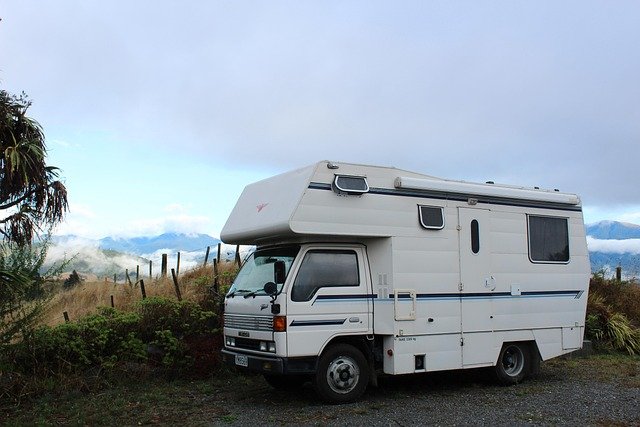Mastering Pre-Authorizations
You expected to spend $120 tonight—then the front desk pre-authorized $300 for “incidentals,” the rental counter blocked $800 as a deposit, and your card suddenly looks maxed. Welcome to the world of pre-authorizations (preauths). This guide explains what they are, how long they last, why they hit nomads harder, and the scripts and tactics that keep your trip moving.
Introduction: The $500 “hold” that ruins your day
A pre-authorization is a temporary hold on your card that reserves money for a future charge. Hotels, car rentals, gas pumps, and booking platforms love them because holds reduce their risk. For travelers, they can quietly lock up hundreds or thousands for days—sometimes after you’ve checked out or returned the car—wrecking your cash flow, tripping spending limits, and triggering FX surprises.
Typical bad day:
- Hotel check-in places a $150–$300 incidental hold per night or per stay.
- Car rental adds $500–$2,500 (higher if you decline CDW).
- Pay-at-pump in the U.S. Provisions a $100–$150 hold before knowing the fuel cost.
- Result: $950+ locked—even though the final charges will be smaller.
Good news: you can plan, reduce, and accelerate preauth releases. Let’s start by demystifying the mechanics.
What is a pre-authorization (preauth)?
Hold vs actual charge
- Hold (authorization): A reserved amount that reduces available credit/balance but isn’t a posted transaction.
- Capture (actual charge): When the merchant turns the hold into a real charge (full or partial).
- Release: When the merchant cancels the remainder of the hold or when the hold expires automatically.
Think of the hold as a parking cone in your limit lane—nobody can drive there until the cone is removed or times out.
How they work technically
- Merchant requests an authorization (e.g., $300) using your card network.
- The issuer approves and decrements your available limit by $300.
- Later, the merchant captures part/all (e.g., your $127 room charge).
- The uncaptured remainder is either manually released by the merchant or falls off when the authorization expires.
Merchant authorization codes
Behind the scenes are auth codes and reason codes (e.g., lodging, vehicle rental, automated fuel dispenser). Networks treat these categories differently, which is why hotel holds behave differently from gas pump holds. The category helps your bank predict the expected final amount and expiry window.
Common preauth scenarios for travelers
Hotel check-in holds
- What to expect: $50–$150 per night, or $150–$300 per stay, plus room+tax if pay-at-checkout.
- What it covers: Mini-bar, room service, damages, late checkout.
- Pro tip: Many properties can lower the incidentals on request or accept a cash deposit. Mention your loyalty status; some chains reduce or waive holds for elites.
Car rental deposits
- What to expect: $300–$2,500 depending on country, car class, and whether you decline CDW.
- What it covers: Damage excess, fuel policy, tolls, tickets.
- Pro tip: If you accept CDW with low excess, the hold often drops dramatically. Ask the counter: “How much is the hold with CDW vs without?”
Gas station “pay at pump”
- What to expect: Preauths of $75–$150 until the final fuel amount posts.
- Pro tip: If your limit is tight, pay inside with a fixed amount (e.g., “$40 on pump 6”) to avoid the higher automated hold.
Booking.com and other platforms
- What to expect: Some OTAs and hotels do test authorizations or partial deposits before arrival.
- Pro tip: Read the property policy page; if unclear, message the property to confirm hold amount and release practice.
How long do preauths take to release?
Merchant release (immediate to 3 days)
Best case: merchant reverses the unused portion at checkout or return—visible in hours on many banks.
Reality: plenty of merchants forget or batch their releases, so holds linger.
Bank/card issuer timeline (up to 30 days)
If no merchant action: issuers let holds expire. Typical windows:
- Hotels: 7–15 days (some faster)
- Car rentals: 10–30 days
- Fuel pumps: 1–5 days
- E-commerce test auths: 1–7 days
Weekends and holidays (delays)
Auth reversals and postings often don’t move on weekends/holidays. If you check out Friday, don’t expect a visible change until Monday/Tuesday.
Difference between debit and credit cards
- Credit card pre-authorization: Reduces available credit, not your cash.
- Debit/prepaid: Reduces your actual available balance—painful if you need cash now.
Rule: For travel holds, use credit (not debit) whenever possible.
Why preauths hit nomads harder
Lower available balances
Slow client payments + multiple holds = insufficient funds at the worst moment (SIM, Uber, doctor). Keep a buffer card untouched for holds.
Multi-currency complications
You might get authorized in EUR, but the posted charge lands in USD or vice versa. Rates change between auth and capture, so the released amount doesn’t always equal the initial hold when converted—especially with dynamic currency conversion traps.
Multiple holds across travel
Stacked holds: hotel $200 + car $1,000 + fuel $150 + a second hotel $300 on the same itinerary can lock $1,650+. Budget for holds like temporary expenses.
Unexpected FX rates at release vs authorization
The hold reflects an estimated FX conversion; the final post uses the actual capture date’s FX. The difference can shave or add a few percent—rarely refunded unless you dispute a wrong currency capture.
Calibrate your cushion with The Nomad Float.
Strategies to minimize preauth pain
Use credit cards (not debit) for holds
Keep a dedicated travel credit card with ample limit for hotels/car rentals. If your limit is tight, call the issuer to temporarily raise it before a long trip.
Dedicated “hold card” with buffer
Set aside one card as the “hold card” with $1,500–$3,000 headroom. Put final charges on your main rewards card, but let the hold card absorb the parking cones.
Ask for exact hold amount upfront
At check-in/counter:
You: “Before we run the card, what is the exact hold amount and how long do you keep it after checkout/return?”
If it’s high: “Can we reduce incidentals to $50, or use a cash deposit?”
Get written release confirmation
At checkout/return, ask for: “We’ve released the unused authorization today.”
If they refuse: request an email or stamped receipt. This helps your bank’s support manually release or expedite.
Offline terminals and authorization issues
How offline terminals work
In weak-signal areas (mountains, ferries), terminals may run offline and store approvals. They’ll replay later, sometimes at a different amount (gratuity added, tip adjusted). This can create dual authorizations.
Dual authorizations and double-charges
You might see the original hold plus a new capture later. The hold should fall off—but it ties up funds in the meantime. Keep receipts with time stamps to prove duplicates.
Remote area payment risks
If the POS can’t complete, merchants may retry with multiple authorizations. Watch statements after remote gas, toll booths, islands, and train cafés.
When holds go wrong: how to fight back
Disputing charges vs disputing holds
- Dispute a charge (posted transaction) via your issuer.
- Dispute a hold (authorization) by asking your issuer to manually release with merchant evidence (e.g., email confirmation the hold was reversed).
Chargeback process (when appropriate)
Only for final charges you didn’t authorize or that differ from the signed agreement. For holds, ask the merchant to send an auth reversal or a $0 completion.
Contacting merchant vs card issuer
- Merchant first: “Please reverse the unused authorization now. Here’s the auth code from my receipt.”
- Issuer next: “Merchant confirmed release—can you force-release the hold?” Provide proof (email/receipt).
Documentation: always get receipts
- Hotel: Folio shows room+tax and $0 incidentals.
- Rental: Check-in form with no damage + fuel policy satisfied.
- Fuel: Receipt showing final amount and time.
Hotel-specific tips
Incidentals explained
“Incidentals” = food, minibar, damages. If you won’t use them, ask to cap or opt out. Many properties can set incidentals to $0 if you pay nightly or leave cash.
Cash deposits as alternative
Some hotels accept cash instead of a card hold (varies by region). Downside: you’ll wait for cash refund at checkout; upside: your card stays free.
Loyalty program benefits (reduced holds)
Top-tier elites (or booking direct) often see smaller holds. At check-in, mention your program: “I’m [status]. Do you apply the reduced incidental hold?”
Car rental deposit survival guide
Collision damage waiver (CDW) impact on holds
Declining CDW can balloon the hold. If your credit card insurance covers you, bring the benefits guide and ask whether they still can reduce the hold. Some counters require their own CDW to lower deposits—do the math vs cash-flow.
Fuel policy hold amounts
Prepaid fuel or return full? Return-full avoids extra fuel holds. If you choose prepaid, make sure they don’t stack a fuel hold on top.
Cross-border rental deposits
Going international? Holds can increase for cross-border rentals. Confirm deposit and release timelines at booking—don’t wait until the counter.
Refund timelines: what’s normal vs red flags
Typical “hotel deposit hold release” timelines (guideline, not a guarantee):
| Scenario | Merchant Release | Bank/Issuer Expiry | Red Flags |
|---|---|---|---|
| Hotel incidentals | Same day–3 days | 7–15 days | Hold still visible >15 days after checkout |
| Car rental deposit | 1–5 days | 10–30 days | Hold >30 days, or a second capture appears |
| Fuel pump preauth | Hours–1 day | 1–5 days | Final charge posts but hold doesn’t drop in 5 days |
| OTA test auth | Immediate–3 days | 7 days | Multiple test holds stack without falling off |
If you hit the red zone, escalate: merchant → issuer (manual release) → formal complaint/chargeback if it turned into a posted overcharge.
Decision tree: Wait or escalate?
Did you check out / return the car?
├─ No → Wait; holds are expected until final capture.
└─ Yes
├─ Do you have a receipt/folio showing final amount and no extras?
│ ├─ Yes → Ask merchant to reverse the unused hold now.
│ └─ No → Request final folio/zero-due letter; then ask for reversal.
├─ Has it been >3 business days since merchant said “released”?
│ ├─ Yes → Call issuer; request manual release; provide proof.
│ └─ No → Wait 24–48h; weekends/holidays delay posting.
└─ Is hold >15 days (hotel) or >30 days (rental)?
├─ Yes → Escalate to issuer disputes; file formal complaint.
└─ No → Monitor; should fall off automatically.
Scripts that work (copy-paste)
Hotel check-in (lower the hold):
“Before we run the card, can you confirm the exact incidental hold and release timing? I don’t use room charging—could we cap incidentals at $50 or take a cash deposit instead?”
Hotel checkout (force the release):
“I’m seeing the authorization still active. Could you reverse the unused portion now and send a confirmation email? My bank can manually release if I have that.”
Car rental (reduce deposit):
“What’s the deposit with CDW vs without? If I accept CDW, does the hold drop? Could you process the release at return and note it on my paperwork?”
Card issuer (manual release):
“The merchant confirmed they’ve reversed the authorization (email attached). Could you force-release the hold on my account?”
Worst-case scenarios we’ve seen (so you don’t repeat them)
- Back-to-back holds: Two hotel check-ins in 24h stack holds despite first folio closing. Solution: use your hold card on hotel #1 and your main card on hotel #2.
- Offline ferry terminal: Dual auths replayed later. Solution: Keep receipts and timestamps; ask issuer to drop the duplicate hold.
- DCC trap: Hotel authorized in your home currency via DCC at a poor rate, then captured in local currency. Solution: Always choose local currency; refuse DCC.
Budget for holds like they’re expenses
Pre-authorizations aren’t going away. Treat them like temporary expenses in your travel budget: plan headroom, use a credit hold card, ask for lower holds, and leave the desk with written confirmation. When things go wrong, documentation + the right script turns weeks of waiting into a 48-hour fix.
Avoid hidden FX shocks — Currency Exchange Fees — and file proofs in Records That Travel.
Quick FAQs
How long do hotel holds last?
Usually same day–3 days after checkout if released by the hotel, otherwise 7–15 days to expire at the issuer. (how long hotel hold)
Debit vs credit for preauth?
Credit wins: It locks credit, not your cash. Debit holds can freeze actual funds. (debit vs credit preauth)
Can I fight a hold?
You can’t “chargeback” a hold, but with merchant proof of release your issuer can manually drop it.
Why was my refund smaller?
If the hold authorized in a different currency or date than the capture, FX differences can produce small gaps.



